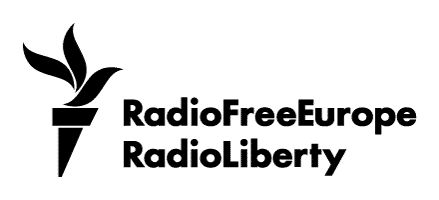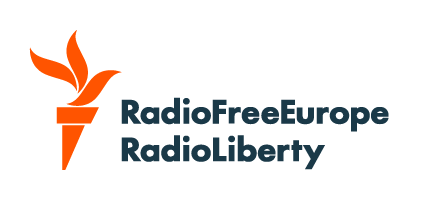BELGRADE -- Serbia will conduct military training exercises with China this month, becoming the first-ever EU candidate to do so as the two countries take a new step toward deepening military cooperation.
China's Defense Ministry said the "Peacekeeper 2025" training will be comprised of special units from the Chinese and Serbian armies and held in Hebei Province, northern China, in the second half of July.
The Balkans region has become strategically important for China, which has invested in massive infrastructure projects there. In particular, it has signed a free-trade agreement with Serbia, while Belgrade has purchased weapons from Beijing, becoming the first European country to acquire a Chinese air defense system.
Serbia's friendly policies toward Beijing -- as well as Moscow -- have set off alarm bells in Brussels, which has issued multiple warnings to Belgrade, which aims to join the bloc.
That tone was evident in the EU's assessment of the planned military training with China, with Brussels saying Serbia should refrain from "actions and statements that contradict the EU's foreign policy positions."
In response to questions by RFE/RL, an EU spokesperson said that the bloc wants to know it can count on Serbia as a reliable European partner committed to common principles, values, and security.
"We need Serbia to assure us of its strategic orientation," the spokesperson added.
As a candidate country, Serbia is obliged to align its foreign policy with that of the EU, which Brussels has repeatedly brought to Belgrade's attention.
Serbia maintains military neutrality and is a member of NATO's "Partnership for Peace" program, with EU accession as its strategic goal.
Belgrade's Balancing Act
However, Belgrade continues to balance its foreign policy between the West, China, and Russia, which is currently under Western sanctions due to its invasion of Ukraine.
Security analyst Nikola Lunic warned that these joint drills "undermine Serbia’s proclaimed EU orientation."
Lunic told RFE/RL that “interoperability between Serbian and Chinese units sends a clear message to the West.”
Last July, Chinese forces held maneuvers with the Belarusian Army directly on NATO’s border during a summit of the military alliance's leaders in Washington where there was sharp criticism of Beijing for its support of Russia.
While the stated goal by China’s Defense Ministry is to “improve combat capabilities and deepen cooperation,” neither Serbia’s Defense Ministry nor the Chinese Embassy in Belgrade disclosed details on participants or the numbers expected to be involved in Peacekeeper 2025.
There is no clarity either on whether future joint training will be hosted in Serbia, a common practice in such collaborations.
Lunic argues the drills fit the profile of a full military exercise, not simply training, due to their scope and branding.
NATO did not respond to a request by RFE/RL for comment on the drills.
Chinese Weapons In Serbia's Arsenal
Serbia’s military cooperation with China is most visible in its recent acquisitions.
The Serbian Army procured six CH-92A drones in 2020 and unveiled the CH-95 at an exhibition in 2023, but official numbers remain undisclosed.
In 2022, Serbia received the FK-3 air defense system, making it the first European operator of this advanced Chinese missile tech.
Late in 2024, Belgrade confirmed that Serbian personnel had received training in China on the FK-3 system, capable of targeting a range of aerial threats.
Washington and Brussels have repeatedly expressed concern over Serbia’s procurement of Russian and Chinese arms, especially after Russia's full-scale invasion of Ukraine in February 2022.
In the wake of the invasion, Serbia imposed a moratorium on joint military exercises with foreign partners, exempting only the "Platinum Wolf" international exercise -- historically held in Serbia with the participation of several NATO members, including the United States.
Lunic argues this selective application of the moratorium undermines the credibility of Serbia’s proclaimed neutrality.
Security Ties Before Military Drills
This is not the first example of security cooperation between Belgrade and Beijing.
Joint police exercises and patrols have taken place since 2019, demonstrating a broader trend of intensified cooperation.
Vuk Vuksanovic of the Belgrade Centre for Security Policy points to the Global Security Initiative, highlighting increased military and police education exchanges and the rapid adoption of Chinese technology, surveillance, and police equipment by Serbia.
From Belgrade’s perspective, this deepening cooperation is consistent with its “multi-vector” foreign policy, using partnerships with diverse global actors, including NATO, Russia, the EU, and China, to maximize its leverage and independence on the world stage.
China's Broader Goals And Growing Trade
Vuksanovic said that, for China, military collaborations such as Peacekeeper 2025 serve two key interests: gaining international operations experience and boosting its profile as a major power, especially given resistance from EU states against deepening partnerships with the Chinese military.
After a humanitarian-focused joint drill with Germany in 2019, and anti-terrorism exercises with Belarus in 2024, the Serbia exercise represents a new chapter in Beijing’s military diplomacy with Europe.
Economically, China’s influence in Serbia is growing. Xi Jinping’s May 2024 visit to Belgrade resulted in a declaration to deepen the strategic partnership and "build a Serbia-China community with a shared future in a new era."
China is now Serbia’s top trade partner for imports, with €5.13 billion euros ($5.95 billion) recorded in 2024, and remains a vital source of investment, loans, and diplomatic support in international institutions, especially regarding Kosovo’s independence.











Forum